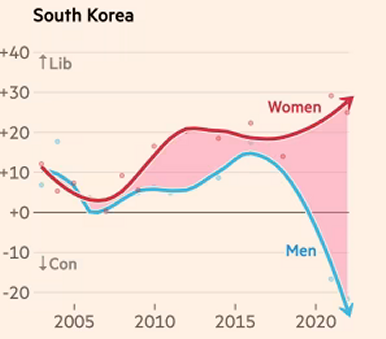Imagine for a moment what a collapse of the modern communication grid would be like. All of a sudden, you can no longer make or receive phone calls, emails, or text messages. You try to go to the Internet — news services, social media, etc. — to find out what’s happening, but you can’t. You ask Alexa, but she’s dropped dead. This being 2024, your family is likely scattered all over the country, or the world, and suddenly you have no way to check on them. You drive to the grocery store for supplies, but they cannot process electronic payments. You go to an ATM to get cash, but of course that doesn’t work either, because the banking system is completely disabled. If you had an old-fashioned radio, you might get some information — and you remember there’s one in your car. There’s nothing on the air, though, because everything that’s used by radio stations these days to create and distribute content also relies on the Internet. Whatever you do for a living, the chances are that you aren’t able to do it. Air and rail travel is paralyzed. You might be able to drive around a little, until you run out of gas — because with payment-processing shut down, the gas stations probably are too. (How much cash have you got handy?)
Can you even really imagine what that would be like? Now reflect on how things once were, even in living memory of geezers like me: no Internet; news delivered mostly by radio or print; a single phone in each household, rarely used, with no answering machine. No cell-phones, no email, no social media, no texting. The concentric circles that bounded our lives fell away sharply with physical distance; nearly all of our daily interactions were with people, problems, and obligations in our home or neighborhood. We did arithmetic with a pencil and paper (which meant we had to know how). To pay for things, we used coins and bills, or wrote a paper check. The area around where we lived we generally knew very well, because it was where, mostly, everything of any practical importance in our lives happened; when we wanted to travel farther, we got hold of a paper map, and knew how to use it. If you needed to know something, you had to learn it, and then keep it available in your head. The way we found out things we didn’t know was by asking someone who might know, or, if you were lucky enough to have such things at home, by getting an encyclopedia or dictionary or other resource off the shelf. If that didn’t work, you went to the local library; if it didn’t have what you needed you need to go to a bigger library in a nearby city, or write a letter to someone. Once you’d gone to all that trouble, though, you’d tend to remember what you’d learnt, because things that actually cost you something have value.
All of this shaped the way our minds and our personalities developed. It was a way of existing in the world that had, as one of its chief features, the fact of physical embodiment in a particular place. This grounding in the local and physical was the foundation upon which everything rested; even abstract things, like money or music or written words, presented themselves to us as physical things. To play music, we used objects made of wood and metal that vibrated and made sound; to hear what others had played elsewhere, we put a vinyl disc on a rotating platter. To learn things, or immerse ourselves in stories, we read books made of paper or cloth. To have a meeting with someone, we went and sat in a room with them. To go to school, we went there, and sat in a classroom. To have a photograph of something, we bought a roll of film, put it in a camera, took a few pictures (usually twenty-four or thirty-six pictures to a roll), then carried the film with us to a place where it could be developed, dropped it off, then came back a week or so later, gave the proprietor some bills and coins, and went home with a packet full of physical copies of the photographs we’d made.
Now, on the other hand, everything is completely dematerialized. (I could write another long passage that contrasts what I’ve described above with the way we live now, but there’s no need; anyone reading this knows very well how all these things are done now.) The cost of many of these things — sending mail, taking pictures, listening to recorded music, for example — has fallen, effectively, to zero, and not only in monetary terms, but in terms of the physical efforts and interactions we no longer have to make. We can live, if we like, with hardly any contact with the physical world at all — including physical, or even spoken, interactions with other people.
The masslessness of everything in this new, dematerialized world, combined with the revolutionary effect of immediate global connectedness, means that distance no longer equals time, and so everything is equally connected to everything else. This in turn means that the “concentric circles” that used to bound our lives no longer really exist at all; a dematerialized person in Kuala Lumpur is no farther away than a dematerialized person a mile down the road. Locality, and the fading-away with distance that used to limit what might affect and concern us in our everyday lives, have mostly disappeared; the circle now includes, all at once and with buzzing, pressing immediacy, everyone and everything in the whole, wide world.
This has all happened quite suddenly (I consider the span of one man’s lifetime “sudden” for changes of this magnitude), but for all its rapidity, the change in the way we live has been enormous. It is a testament to our adaptability as a species that we have managed to keep up at all, but frankly I fear that we have only done a partial and superficial job of it, and that in doing so we have wrenched much of what we really are inside badly out of whack. But adapt we have, and eagerly so.
To live in this radically different world, and to take full advantages of the tempting conveniences it offers, we have built an astonishing new framework — a globe-girdling network, with a powerful computer at its every node, that encompasses nearly every aspect of our lives. What this universal dematerialization has made possible would have seemed quite unbelievable to any of us when I was a boy — so much so, in fact, that nobody, not even our most imaginative sci-fi writers and think-tanks saw it coming; we were too busy thinking about how our physical selves would be zooming around in rocket-ships and flying cars. So immense were the powers (and conveniences) we gained that we never looked back, not even for a moment; we switched off the headlights and pressed the pedal to the floor.
Having built this thing, it would be too much to expect, in our feverish excitement, that we’d proceed with caution and try to hang onto the old ways “just in case”: it was all too wonderful. (And don’t get me wrong, it is: in so many ways, it’s a dream come true.) So we went “all in” on it, for decades now, and here we are.
It’s hard not to think that we are almost a different species now than we were just that short while ago. I mean that in the sense that what creates evolutionary speciation is a change of environmental conditions, and with it a change in “selection pressure”: the climate changes, a food source dies out or a new predator appears, and after some winnowing-out the descendants of the original species are fully adapted to the new habitat, and would very possibly not survive in the old one. In our own case, we have largely cast away our old skills and tools for managing the old, physical world we used to live in, and have made our new, non-local, dematerialized selves wholly and utterly dependent on our new, artificial habitat. We wouldn’t remember how to wield the old skills and tools even if we wanted to — and we don’t want to.
The problem, though, is that I think most of us have no idea how fragile and how brittle the infrastructure of our new habitat really is. Unlike the robust infrastructures of the past (Roman viaducts are still standing, after all these long centuries of neglect), our new world isn’t made of stones, but of bits, while the physical system it all rests on is anything but durable.
In 1859, there was an exceptional solar flare — a “coronal mass ejection” that blasted the earth with a titanic pulse of electromagnetic energy. It was so powerful that it set telegraph equipment on fire. It was called the “Carrington Event“, and while it was unusual, such things aren’t all that unusual. If it happened today, it would instantly wipe out our communication and power grids. These networks are also vulnerable to natural disasters, man-made electromagnetic-pulse weapons, other forms of physical sabotage, and dematerialized threats in the form of software attacks.
If that isn’t enough, the global span of this interconnected network means that everything is tightly coupled to everything else to an extent that means that any large-scale failure may have cascading effects that can crash the whole system. Once upon a time, a catastrophe on one side of the world might have little or no effect on the other; that is no longer the case. The world is very small now, and amid all our comforts and conveniences we forget, I think, what a risk we have taken by having made ourselves so completely dependent on moving little packets of electrons and photons through wires and cables.
So: if the grid collapses, what will you do? Things will suddenly get very local, and very physical — like they used to be, but with the difference that we don’t have any idea any longer how to live in such a world. Have you thought about this?


